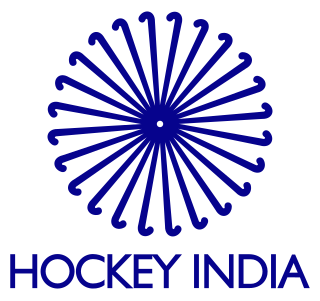
The Asian Games, also known as Asiad, is a continental multi-sport event held every four years among athletes from all over Asia. The Games were regulated by the Asian Games Federation (AGF) from the first Games in New Delhi, India, until the 1978 Games. Since the 1982 Games, they have been organized by the Olympic Council of Asia (OCA), after the breakup of the Asian Games Federation. The Games are recognized by the International Olympic Committee (IOC) and are described as the second largest multi-sport event after the Olympic Games.

The Asian Football Confederation is the governing body of association football, beach soccer, and futsal in some countries/territories in Asia and Oceania. It has 47 member countries most of which are located in Asia. Australia, formerly in OFC, joined AFC in 2006. Guam and the Northern Mariana Islands, both territories of the United States, are also AFC members that are geographically in Oceania. The Asian Ladies Football Confederation (ALFC) was the section of AFC who managed women's association football in Asia. The group was independently founded in April 1968 in a meeting involving Taiwan, Hong Kong, Malaysia and Singapore. In 1986 ALFC merged with AFC.

The India national football team represents India in international football and is governed by the All India Football Federation (AIFF). The team is affiliated to FIFA and Asian Football Confederation (AFC).

The South Korea national football team represents South Korea in men's international football and is governed by the Korea Football Association. South Korea has emerged as a major football power in Asia since the 1980s, having participated in ten consecutive and eleven overall FIFA World Cup tournaments, the most for any Asian country. Despite initially going through five World Cup tournaments without winning a match, South Korea became the first Asian team to reach the semi-finals when they co-hosted the 2002 tournament with Japan. South Korea also won two AFC Asian Cup titles, and finished as runners-up on four occasions. Furthermore, the team won three gold medals and three silver medals at the senior Asian Games.

The Saudi Arabia national football team represent Saudi Arabia in men's international football. They are known as Al-Suqour Al-Khodhur in reference to their traditional colours of green and white and represent both FIFA and the Asian Football Confederation (AFC).

The Iraq national football team represents Iraq in international football and is controlled by the Iraq Football Association (IFA), the governing body for football in Iraq. Iraq's usual home venue is the Basra International Stadium.

The 2002 Asian Games, officially known as the XIV Asian Games and also known as Busan 2002, were an international multi-sport event held in Busan, South Korea from September 29 to October 14, 2002, with the football event commenced 2 days before the opening ceremony.

The Jordan national football team represents Jordan in international football and is controlled by the Jordan Football Association. Jordan have never qualified for the World Cup finals but have appeared four times in the Asian Cup and reached its quarter-final stage in the 2004 and 2011 editions.

The Pakistan national football team represents Pakistan association football in FIFA-authorized events and is controlled by the Pakistan Football Federation, the governing body for football in Pakistan. Pakistan became a member of FIFA in 1948 joining the Asian Football Confederation and its national team debuted in 1950.

Singaporeans participate in a wide variety of sports for recreation as well as for competition. Popular sports include football, basketball, cricket, rugby union, swimming, badminton, and cycling. Many public residential areas provide amenities like swimming pools, outdoor spaces and indoor sport centres, with facilities for badminton, squash, table tennis, gymnastics, indoor basketball and volleyball, among others.
Iran national under-23 football team, also known as Iran U-23 or Iran Olympic Team; represents Iran in international football competitions in Olympic Games, Asian Games and AFC U-22 Asian Cup, as well as any other under-23 international football tournaments. It is controlled by the Iran Football Federation.
The men's football tournament has been a regular Asian Games sporting event since the 1951 edition, while the women's tournament began in 1990.

Iran participated in the 2002 Asian Games held in the city of Busan. This country is ranked 10th with 8 gold medals in this edition of the Asiad.
This article contains an overview of the sport of athletics, including track and field, cross country and road running, in the year 2002.

The Indian women's national field hockey team represents India in international field hockey, and is governed by Hockey India. Nabhvarna are currently ranked 6th in the FIH World Rankings, and are ranked as the best team in Asia. They have won the gold medals at the 2002 Commonwealth Games and 1982 Asian Games. They have also won the Women's Asia Cup twice, i.e. in 2004 and 2017. They also won the Asian Champions Trophy in 2016.
The FESPIC Games or the Far East and South Pacific Games for the Disabled, was a multi-sport event in Asia and the South Pacific region which is considered to be a precursor to the Asian Para Games, as two of its edition games in 1999 (7th) and 2002 (8th) were held parallel to the 1998 Asian Games and the 2002 Asian Games.

The Indian National Kabaddi Team represents India in international men's kabaddi competitions. The team is by far the most successful national kabaddi side of any country, winning gold medals at the Asian Games in 1990, 1994, 1998, 2002, 2006, 2010, and 2014, as well as winning all three Kabaddi World Cup events to date. Maninder Singh (kabaddi) is the current captain of the team after Deepak Niwas Hooda was suffering from bad form in PKL 9.

China competed in the 2002 Asian Games held in Busan, South Korea from September 29, 2002 to October 14, 2002.
The India national under-23 football team represents India in international under-23 football and is controlled by the All India Football Federation (AIFF). A member of the Asian Football Confederation (AFC), the team is eligible to compete in the Summer Olympic Games, the AFC U-23 Asian Cup, and the Asian Games, subject to qualification.

South Korea was the host nation of the 2002 Asian Games held in Busan from September 29 to October 14, 2002. South Korea was represented by the Korean Olympic Committee, and the South Korean delegation was the largest in this edition of the Asian Games. The delegation of 1,008 people included 770 competitors – 460 men, 310 women – and 238 officials. North Korea competed for the first time in an international sporting event hosted by South Korea. Both nations marched together at the opening ceremony with a Korean Unification Flag depicting the Korean Peninsula as United Korea.















